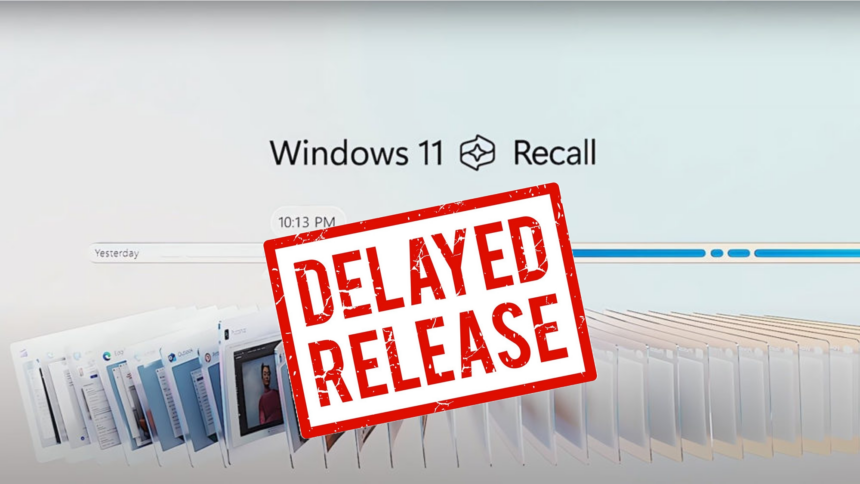Microsoft’s Recall feature for Windows 11, a part of its AI-driven Copilot+ initiative, has faced another delay. Initially promised for a summer launch, Recall is designed to log months of PC usage, helping users revisit past actions. However, due to ongoing security concerns, Microsoft has now postponed the feature’s rollout to December.
What’s Happening & Why This Matters
The Recall feature aims to track user activity over time, offering a memory aid that allows users to revisit specific tasks, applications, or documents accessed over several months. Initially, Microsoft intended to launch Recall alongside Copilot+ this summer. However, significant privacy concerns surfaced during preview builds: the feature stored user data in plaintext, making it easily accessible to other users or malware, potentially exposing sensitive information .
Security, Delay, and Requirements
In response to privacy concerns, Microsoft revamped Recall’s security measures. By late September, the company announced improved protections, such as Virtualization-Based Security (VBS) and Windows Hello authentication. Additionally, Microsoft assured users that Recall would be opt-in, allowing those who prefer not to use it to remove the feature entirely. Despite these adjustments, Microsoft has delayed the preview for Windows Insider Program testers to December, as additional refinements are underway.
Recall’s rollout is limited to devices meeting specific hardware standards for the Copilot+ experience, including at least 16GB of RAM, 256GB of storage, and a neural processing unit capable of 40 trillion operations per second (TOPS). Only Windows Insider Program participants can access Recall for now, and general users will likely have to wait until 2025 for its release on non-Insider PCs .
TF Summary: What’s Next
The Recall delay emphasizes commitment to user privacy as Microsoft refines the feature’s security framework. While the December rollout offers a glimmer of hope, Recall’s limitations suggest the feature may be a while from full public access. As Microsoft improves Recall’s ability to recall, the company needs to deftly balance user convenience with robust security.
TF predicts Microsoft exercises measured caution by extending this delay further before unleashing Recall completely. Better for an extended waiting period than a black eye with customers.
— Text-to-Speech (TTS) provided by gspeech


